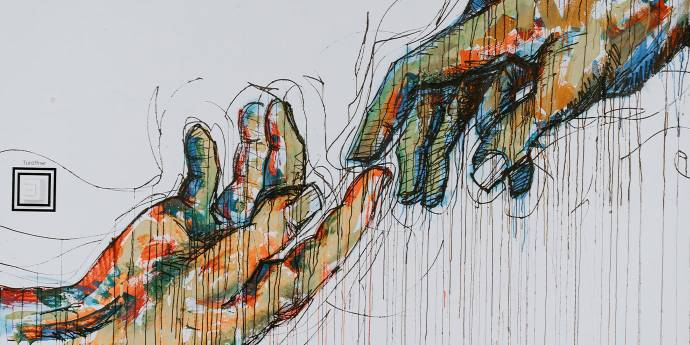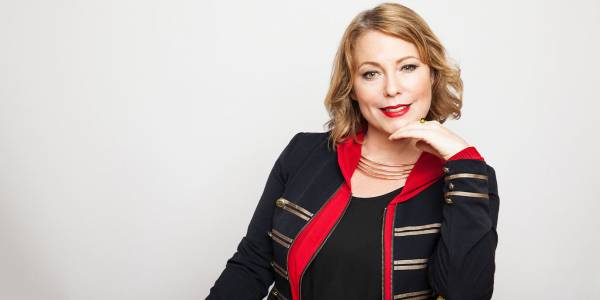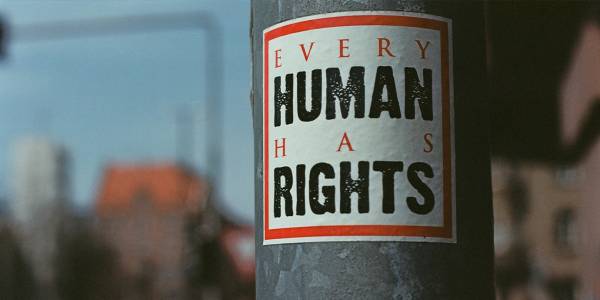Christmas wish granted for Pasifika leaders
Christmas has come early for 17 leaders of Pacific descent who have been selected for the Tautua Mentoring Programme 2025.

Imagine a world where you can’t see people’s faces and reading books is impossible.
That’s a world Minnie Baragwanath knows all too well. As a teenager she was diagnosed with a congenital sight condition called Stargardts, which means she relies on her peripheral vision to see.
Currently in New Zealand 25 percent of the population has an access need. This includes 30 percent of millennials and 50 percent of those over 65 according to Minnie Baragwanath, founder of social enterprises Be.Lab and The Global Centre for Possibility.
“If we live long enough through ageing all of us will experience age-related disability and impairment. It’s part of being human,” she says.
Baragwanath attended university at 16 and graduated by the time she was 19-years-old. It was, she says, a much better option than high school where she was struggling with the course material because she couldn’t see the blackboard.
“I just thrived in the university environment because I could just listen,” she says.
During her high school years she also immersed herself in extracurricular activities from participating in speech and drama to playing badminton and basketball. She represented her school in skiing and running and was selected for a once-in-a-lifetime outdoor adventure experience meant to empower young people to reach their full potential through challenges on the ocean.
Only, that experience was pulled from under her when the organisers caught wind of her visual impairment.
“I felt like I’d been judged by a label,” she says of a situation that involved no consultation prior to the decision. Instead, she was offered the alternative of sailing on the ‘disabled boat paired up with an able-bodied person.’
At the time, it left her deeply upset and shocked given her athletic ability.

‘Access citizens’ – the term used by the Global Centre for Possibility to describe those from the disability community – are often seen through one of two lenses, according to Baragwanath.
The first is based on ‘an assumed deficit,’ and the second, through ‘a lens of possibility’ where individuals are supported with tools to navigate equal opportunities in everyday life including education and employment.
Baragwanath is well aware that access to all things is not created equal. As a result of covid-19, she says unemployment rates for access citizens have skyrocketed. And 90 percent of roles advertised are not accessible to her, unless they have been posted through platforms with special screen reading software.
But who is responsible for making changes so that people like Baragwanath have equal access to employment and other opportunities from the very start?
While this could be sidelined as an HR issue, Baragwanath believes change needs to be implemented and led from the top, directed at boards and management.
Equally, she says if boards are looking to increase their diversity and develop policies around inclusion they need to look beyond unfounded stereotypes that limit those with access needs, and that ‘accessibility’ should be approached as a strategic thread through an organisation.
“It’s not about including someone into our paradigm, it's about renegotiating and redefining a new paradigm together. And through that, the value that can be gained is just exponential,” Baragwanath says.

Appointing someone with a disability on a board can also help organisations make informed decisions in understanding the deeper and more subtle issues. Conversations as a starting point can lead to the implementation of policies that will lead to inclusive and accessible environments.
“As an access citizen you learn to be incredibly adaptive, creative and resilient. If I was on a board I’d be thinking, ‘who doesn’t want a resilient, creative problem solver’,” Baragwanath says.
But the impact of pervasive negative stereotypes continues to shape society’s imagination when speaking of disability.
In 2012, the Ministry of Social Development published a report looking at ‘Employer attitudes towards employing disabled people.’ What they discovered was an existing mismatch between the picture of an ‘ideal employee’ and the picture of a disabled person.
And while 97 percent of those surveyed felt disabled people deserved a fair go, just over half believed there were barriers to employment opportunities even within their own workplaces.
These barriers and limited beliefs included a perception of lower productivity rate, the employers fear that someone with a disability would not fit into the team and the concern that employing someone with access needs would increase company costs. But all of these perceived barriers were unfounded by those who employed people with access needs.
“Handicap comes from the words ‘cap-in-hand,’ as in, begging. And crippled in the dictionary is defined as someone who is unable to help oneself...they’re all devaluing words,” says Bay of Plenty man Paul Curry who during his career has been advocating for disability rights.

Contrary to some widely held perceptions, in a survey conducted by Momenta (2020), people with a disability were more likely to stay longer in a job (10.6 years compared to non-disabled people who lasted on average seven years). And were taking 85 percent ‘less’ sick leave than their non-disabled peers.
While this looks positive on the outset, Curry says there is a fair amount of pressure that those with disabilities place on themselves, which is partly informed by a fear that others will view them as unable to do the job.
“It’s just the reality that we are thankful for having the job,” he says of the lack of opportunities for many access citizens.
Curry has been wheelchair bound since a traumatic accident in his late teens left him paralyzed from the waist down. But like Baragwanath, his disability has never stopped him from achieving his personal and professional goals – he has had a successful career at both an executive and director level where he sits on a number of boards.
But in a world that has been transformed by social media, a lot of emphasis and value is placed on ‘the body beautiful,’ and aesthetics matter now more than ever, especially when youth and beauty are used to engage potential customers.
This is also reflected by brands in the physical marketplace and is often reinforced by vanity recruiting across front-facing, customer industries such as hospitality and retail.
In working towards an inclusive society, where does that leave those with disabilities or access needs?
“As a board you’re there to govern the organisation and to represent the people within it and if you can’t see the value of recruiting someone with a disability you need to question what your purpose is,”
Erin Roxburgh-Makea is a final year PHD student researching Māori Governance. She has a background in policy, marketing and business and also sits on the board for WISPA - Women in Sport Aotearoa.
“As a board you’re there to govern the organisation and to represent the people within it and if you can’t see the value of recruiting someone with a disability you need to question what your purpose is,” she says.
Roxburgh-Makea believes the impact of inclusive thinking around disability can promote and empower people to feel valued.
She cites a recent example of a Paralympian, who, as part of her Olympic pack was given a jandal with a strap on it for her prosthetic leg.
This, Roxburgh-Makea says, happened for the first time in the athlete's career, resulting in an emotional response.
But what it also did was reinforce that small changes can make a world of difference to making people feel not only worthy, but ‘seen.’
For more information head to the MSD Toolkit which supports the public sector to build disability confident employment practices. The information and tools apply for any employer.